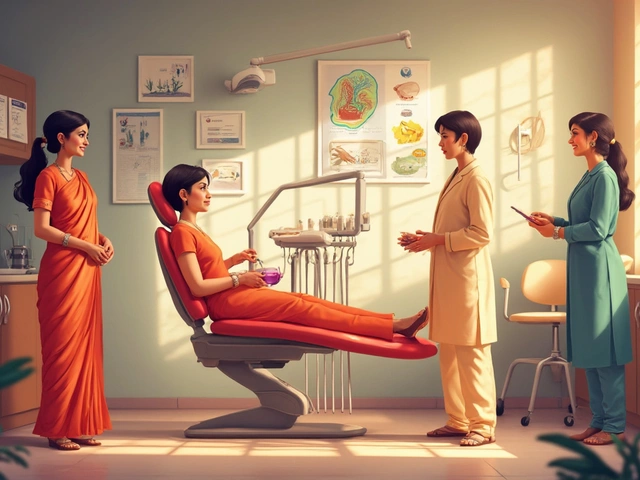Think cancer always comes with pain or a dramatic shift in how you feel? Picture this: Someone goes to the doctor for a routine checkup, feeling strong, sleeping well, eating steaks, keeping up with their marathon training—then they’re blindsided with a cancer diagnosis. It sounds like the stuff of medical dramas, but it’s more common than most people realize. Cancer isn’t always loud. Sometimes, it quietly takes hold, and your body won’t give you any red flags. This is why people often ask, “Can you have cancer and feel completely fine?”
Why Cancer Can Lurk Quietly: Understanding the Silent Start
Here’s something most folks don’t realize: Cancer doesn’t always make a grand entrance. In its early stages, a lot of cancers slip under the radar because they don’t mess with day-to-day activities. Many types develop deep inside organs, hiding out in places like the colon, prostate, liver, or even the pancreas. Some of these don’t hurt or cause symptoms until things get serious.
Cells go rogue, start multiplying, and at first, you might not feel a thing. The body has a wild way of adapting and compensating, so even if something’s off inside, you keep ticking along normally. Sometimes, there will be tiny changes that are easy to brush off: a bit of extra tiredness, the urge to pee more often, a weird patch of skin, or a nagging cough that comes and goes. Nothing dramatic, just small things we blame on aging, stress, or busy lives.
Take the story of kidney cancer. Many people discover it by accident—maybe during a scan for kidney stones or back pain. It often doesn’t hurt or bleed until it’s big enough to cause pressure. Pancreatic cancer is famous for staying hidden because the pancreas itself sits so deep in the belly. Even with something as serious as colon cancer, the early stages might just mean more frequent gas or slightly odd bowel habits—things that can easily be overlooked.
It gets even trickier with slow-growing cancers like some forms of lymphoma or prostate cancer. These can chug along for years without making a peep. Melanoma, a skin cancer, might look like a regular mole for months or longer before it changes shape or color. This quiet start isn’t rare: a 2021 study from the U.S. found that nearly 40% of cancers diagnosed in certain adults came out of the blue—they felt fine before their test results dropped. Until something blocks, bleeds, or spreads, the body’s alarm bells might not ring.

Unexpected Signs: What Does “Feeling Fine” Really Miss?
Let’s flip the script—what does “feeling fine” actually mean? Most of us judge this by our mood, our energy, whether we sleep well, or how often we reach for painkillers. But our bodies are masters at hiding problems under the surface.
There are subtle, easy-to-miss signs that can signal cancer quietly moving in. Maybe persistent fatigue sticks around, even after good sleep. An unexplained weight loss of more than five or ten pounds—especially if you aren’t dieting—is another sneaky sign. How about stubborn indigestion, night sweats, or swollen glands that don’t hurt? People chalk these up to normal life or minor bugs. Blood in the toilet, a nagging sore that doesn’t heal, or changes in the way clothes fit around the belly—these all get explained away or ignored. And yet, in countless real-life cases, these are the first little pebbles before the avalanche.
Let’s talk specifics. Leukemia often shows up as frequent nosebleeds, night sweats, or big bruises from minor bumps. Ovarian cancer is famous for hiding out with bloating, feeling full quickly, or a change in periods. Stomach cancer may cause just a vague upper belly pain that comes and goes. Oral cancers? Sometimes, it’s nothing more than a stubborn mouth ulcer. With breast cancer, the lump isn’t always obvious; changes in skin texture, nipple direction, or a scaly patch can be warning bells.
Screenings pick up cancer before you feel sick or spot a lump. That’s why doctors hound people to get colonoscopies, mammograms, Pap smears, or annual blood tests—because these catch sneaky “silent” cancers long before symptoms crash the party. A good tip: keep an eye on your “normal.” Notice if something feels persistently off, even if it seems minor. You know yourself best. Maybe you’re not the type to run to the doctor. Still, if something just doesn’t add up—trust your gut.

What Should You Do? Tips for Spotting Trouble Early
If you’re reading this and thinking, “I feel fine, so I must be fine,” you’re not alone. But the real answer isn’t to panic—just be smart about paying attention to your body and routine health checks.
- Routine screenings: They’re annoying, they take time, but they genuinely save lives. For adults over 45, a colonoscopy can pick up polyps before they’re dangerous. Routine skin checks, even if you think, “My skin looks the same,” can catch melanomas early. Regular Pap smears for women and prostate checks for men are not just for peace of mind—they find things you can’t feel or see yourself.
- Don’t brush off little changes: It’s tempting to ignore mild indigestion, cough, or weird fatigue, especially when life gets busy. Try to give yourself a quick once-over every few months. Make a list if you notice changes that stick around for more than a few weeks.
- Know your family’s cancer history. You don’t need to become a geneticist, but having an honest talk with relatives about their health can help your doctor recommend special screening or starting tests younger.
- Listen to your friends and loved ones. Ever had someone comment, “Hey, you’ve lost weight!” or “Are you okay? You seem tired.” Sometimes, other people spot changes before you do.
- Don’t let fear delay a checkup. Tons of people skip the doctor because they’re afraid of bad news. But trust me, catching cancer early is almost always better than waiting for big symptoms.
- If you’re in a higher-risk group—maybe you’ve smoked, have a history of heavy drinking, or lived around industrial pollution—stay on top of those screens and checks.
Modern technology makes it easier to detect cancers early. Simple blood tests can now catch hundreds of different kinds with high accuracy. DNA screening is becoming more common for people with a strong family risk. Plus, recent apps let you track changes in your health, habits, or mole pictures, giving you reminders when it’s time to talk to your doctor.
Early detection is the secret sauce in cancer survival: It gives you more options and a better shot at beating it. So, yes, you can have cancer and still feel fine. But don’t let that lull you into ignoring regular checks or brushing off the small stuff. The trick is keeping it real—no panic, but stay alert. Look out for the small signs your body might be giving you, even if you feel strong today. Because silent cancer isn’t rare, but catching it quietly is absolutely possible.



